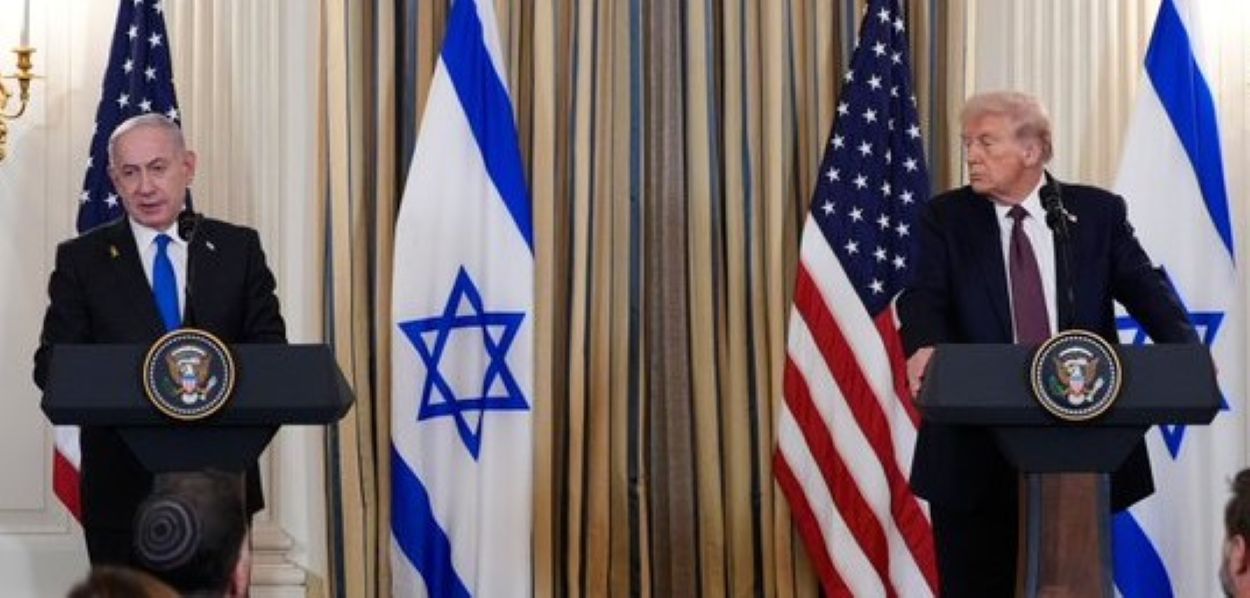President Donald Trump announced that Israeli Prime Minister Benjamin Netanyahu agreed to support a U.S.-sponsored Gaza peace plan to end the nearly two-year war.
Speaking at a White House press conference, Trump said they were “beyond very close” to a deal, urging Hamas to accept the 20-point proposal that includes a ceasefire, hostage-prisoner swap, Israeli withdrawal, Hamas disarmament, and a transitional government led by an international body.
During Netanyahu’s fourth White House visit since Trump’s January 2025 return, the Israeli leader sought to strengthen U.S. ties after Western nations recognised Palestinian statehood, a move Trump criticised as rewarding Hamas. Trump, who vowed in 2024 to end the conflict, greeted Netanyahu warmly, contrasting the Israeli PM’s chilly UN General Assembly reception on September 26, where delegates protested.
US and Israel agree on a peace proposal to end the two-year war in Gaza, featuring a ceasefire and immediate hostage release plans https://t.co/plPYGtQOuE pic.twitter.com/JX5b2CbpgY
— Reuters (@Reuters) September 30, 2025As talks unfolded, Israeli tanks advanced deeper into Gaza City on September 29, part of a major offensive to eliminate Hamas. The war, leaving Gaza in ruins and causing a humanitarian crisis, has complicated ceasefire efforts. Previous U.S.-backed attempts failed due to disagreements between Israel and Hamas, with Netanyahu vowing to dismantle the group completely.
The White House presented the plan to Arab and Muslim states at the UN General Assembly, but Hamas’s absence from negotiations raises doubts. Trump thanked Netanyahu for trusting the plan to end decades of conflict and foster regional peace. The proposal aims to bridge gaps, though Israel’s reservations and Hamas’s non-involvement pose hurdles.
Read: Over 100,000 Protest in Berlin Against German Support for Israel’s Gaza Genocide
The Gaza war, with over 40,000 deaths (UN, 2025), has global implications, with 65% of Americans supporting diplomatic resolutions (Pew Research, 2025). Trump’s push, backed by Netanyahu, could reshape Middle East dynamics, but Hamas’s response is critical. The plan’s success hinges on international cooperation amid ongoing violence.






